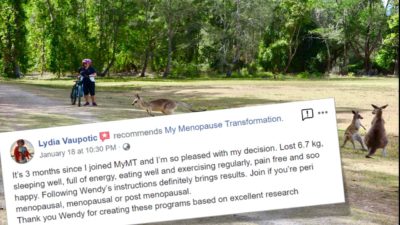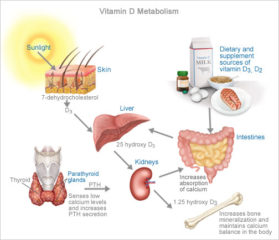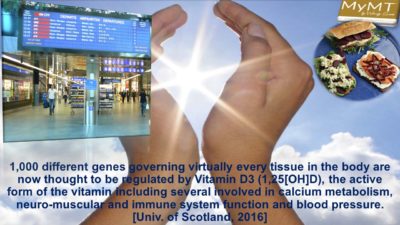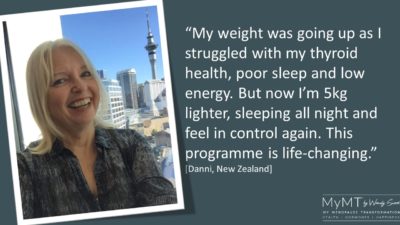Anzac Day in New Zealand and Australia is an historical tribute to all who have fought for our freedom, but whilst I was listening to the services on the radio, I was a bit put-out. Not one mention of the wonderful nurses who worked tirelessly during each World War caring for soldiers and supporting the war effort. The photo I’ve attached is Matron Margaret Wilson from Australia, who worked so hard in WW1 and now features on the cover of a book by Peter Rees, called ‘Anzac Girls’.
I have numerous nurses on my 12 week programmes. Lydia is one of them and as she found too, it’s tough when you are on your feet all day and going through menopause. But it’s even tougher when you have to work night duty and you can’t get your dose of Vitamin D. This mighty vitamin is so important during menopause and not only affects our sleep patterns, but also our moods, hot flushes sore joints and weight gain. It’s not only a vitamin, but is now known to be a hormone – a powerful chemical messenger that is involved in numerous functions in the body. Not only is it our ‘sunshine vitamin’ – but it’s our immune health vitamin too. And those amazing Anzac Nurses working night duty, may not have got enough of it.
 In many diseases of older age for both men and women, there is often low Vitamin D status which commences in mid-life. For women, the change in Vitamin D status generally begins during menopause. Furthermore, when these women are night shift-workers, such as many nurses, low Vitamin D levels are often the start of a slippery slope towards more immune health changes and increased inflammation building up in the body, including depression.
In many diseases of older age for both men and women, there is often low Vitamin D status which commences in mid-life. For women, the change in Vitamin D status generally begins during menopause. Furthermore, when these women are night shift-workers, such as many nurses, low Vitamin D levels are often the start of a slippery slope towards more immune health changes and increased inflammation building up in the body, including depression.
 Part of the reason for lower Vitamin D levels hitting women during menopause, is our changing oestrogen levels. Oestrogen receptors can be found all over our body, including in our epithelial tissue (skin), so during our menopause transition, when we begin to lose oestrogen receptor cells, it’s not just the ovaries that are affected. Other oestrogen-attracting cells are too. What this means is that women (both fair-skinned and dark-skinned women) don’t synthesise (produce) Vitamin D very well in menopause. It also means that night shift-workers get a double-whammy of losing oestrogen and losing exposure to Vitamin D because they have less available sunlight hours if they sleep all day.
Part of the reason for lower Vitamin D levels hitting women during menopause, is our changing oestrogen levels. Oestrogen receptors can be found all over our body, including in our epithelial tissue (skin), so during our menopause transition, when we begin to lose oestrogen receptor cells, it’s not just the ovaries that are affected. Other oestrogen-attracting cells are too. What this means is that women (both fair-skinned and dark-skinned women) don’t synthesise (produce) Vitamin D very well in menopause. It also means that night shift-workers get a double-whammy of losing oestrogen and losing exposure to Vitamin D because they have less available sunlight hours if they sleep all day.
Unlike other essential vitamins that must be obtained from food (these ‘essential vitamins’ aren’t made in the body, so we need to source them from food), Vitamin D can be synthesised in the skin through a photosynthetic reaction triggered by sunlight.
The efficiency of this production is reliant on exposure to sunlight directly on our skin and we produce Vitamin D3 which then undergoes additional transformation (in the presence of oestrogen) to 25-hydroxyvitamin D, which is the major form of Vitamin D that circulates in our bloodstream. Between the skin cells and the liver, our body carries out this transformation, but another transformation occurs in the kidneys forming 1, 25 (OH)D. By now, Vitamin D has become a hormone and it goes on to accumulate in the intestine, where it enhances calcium and phosphorous absorption – controlling the flow of calcium into and out of bones to regulate calcium-bone metabolism. Over 1000 different genes governing virtually every tissue in the body are now thought to be regulated by Vitamin D3.
 For most fair-skinned people, 30 minutes a day of natural sunlight exposure (not in the heat of the day) can initiate the release of 50,000 IU (International Units or 1.25mg) of Vitamin D into the circulation within 24 hours of exposure. In darker skinned people, this amount of time yields around 20-30, 000 IU.
For most fair-skinned people, 30 minutes a day of natural sunlight exposure (not in the heat of the day) can initiate the release of 50,000 IU (International Units or 1.25mg) of Vitamin D into the circulation within 24 hours of exposure. In darker skinned people, this amount of time yields around 20-30, 000 IU.
Without adequate Vitamin D, women doing night shift-work and going through menopause, may experience more hot flushes and worsening sleep patterns.
Put all this together and it is a recipe for changing health as inflammation builds up in cells and tissues. Many night-shift workers with low Vitamin D status may also find that they put on belly-fat more readily. This is because optimal Vitamin D levels are crucial to sleep quality (melatonin production) and when we don’t sleep well, the thyroid hormones get out of balance which leads to metabolic problems such as high blood pressure, increased heart rate and temperature regulation problems (hot flushes anyone?). All of these factors are well known as the precursors to the slippery slope of heart disease, obesity and Type 2 diabetes. Especially for women going through menopause and into their post-menopause years.
As humans, our body is programmed to a day: night/ light: dark circadian cycle. When shift work or working long hours interferes with this for women in their menopause transition, life can get a bit tough. One of the most important strategies for the women I coach on both of the MyMT programmes is for them to get their Vitamin D levels tested if possible. If these are low, then this is one of the only supplements that I encourage them to take – especially for women doing night-shifts and those who are in their winter months. It’s far more important for women to take Vitamin D and to get this from good food sources as well – in fact I think it is even more important than any menopause supplement that is on the market (which often don’t have good scientific research to qualify the effectiveness of the supplements).
 Vitamin D is not just about bone health in menopausal women. It’s more than that. Vitamin D is a hormone and that means it has a far-reaching effect on the health of nearly every organ in our body. Because we have oestrogen receptors all over our body, when oestrogen levels become low during our menopause transition, then it’s a pretty safe bet, that for those of you who work night-shift and therefore, try to sleep most of the day, your Vitamin D levels will undoubtedly be low. My advice to you?
Vitamin D is not just about bone health in menopausal women. It’s more than that. Vitamin D is a hormone and that means it has a far-reaching effect on the health of nearly every organ in our body. Because we have oestrogen receptors all over our body, when oestrogen levels become low during our menopause transition, then it’s a pretty safe bet, that for those of you who work night-shift and therefore, try to sleep most of the day, your Vitamin D levels will undoubtedly be low. My advice to you?
Ask your GP to add Vitamin D testing to your next lot of blood work.
Dr Wendy Sweet, Women’s Healthy Ageing Researcher & MyMT Coach
 [Benefits of sunlight: A bright spot for human health. Environmental Health Perspectives, (2008). 116(4), 161-167].
[Benefits of sunlight: A bright spot for human health. Environmental Health Perspectives, (2008). 116(4), 161-167].
[Lehnert M. et al. (2018). Vitamin D supply in shift working nurses. Chrono-biology International.]

